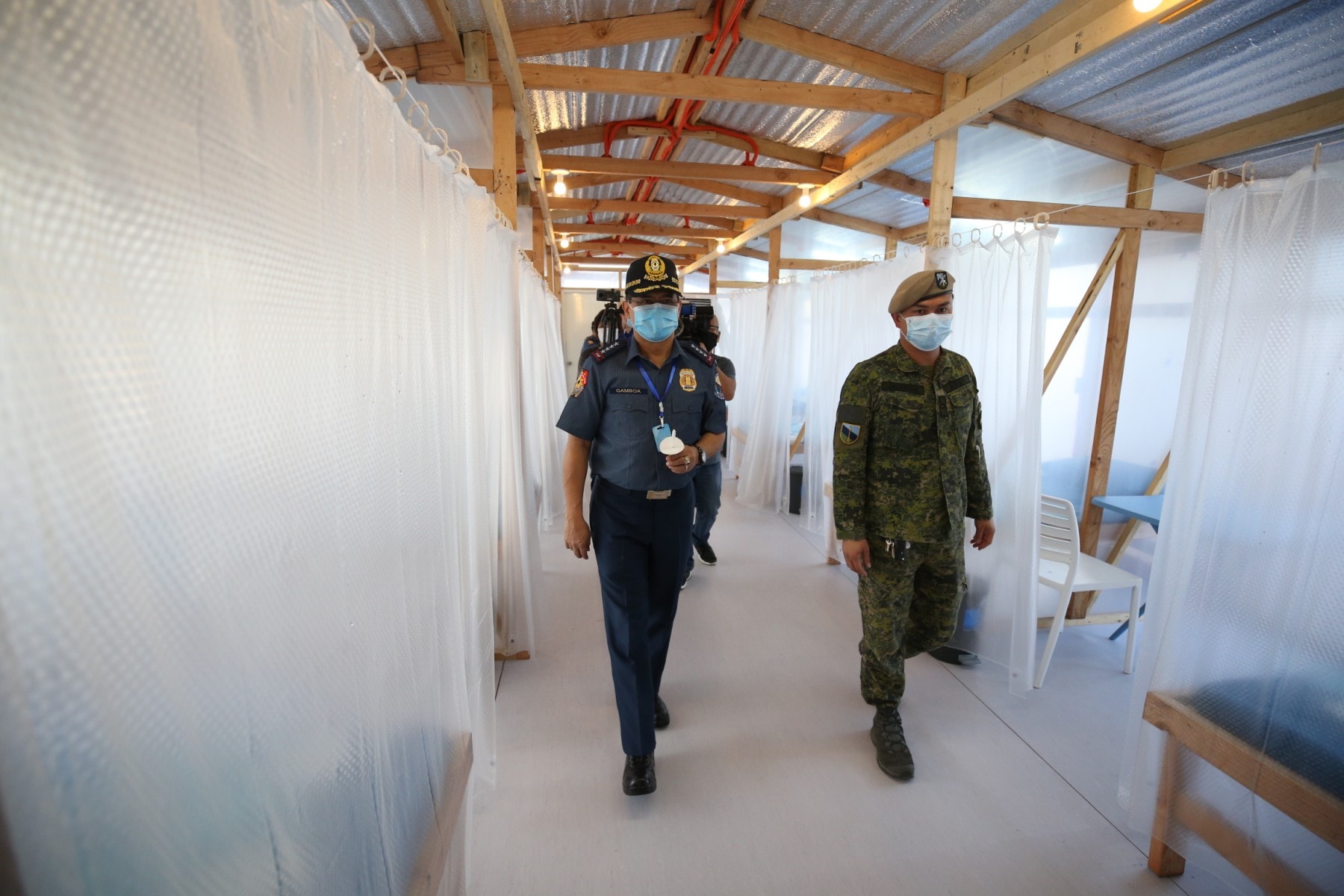Knock, knock.
Interior and Local Government Secretary Eduardo Año today said that a planned, house-to-house, police-assisted witch hunt—erm, search for mild and asymptomatic COVID-19 cases—is totally within the bounds of the law.
Año told news show Unang Hirit that the search for asymptomatic patients is covered by Republic Act 11332 or “An Act Providing Policies and Prescribing Procedures on Surveillance and Response to Notifiable Diseases, Epidemics, and Health Events of Public Health Concern.”
“In Section 4, Letter F, Paragraph 3, it states ‘to ensure that public health authorities have the statutory regulatory authority to ensure the following: mandatory reporting, epidemic investigation and quarantine, and isolation,” Año said in English and Filipino.
The secretary warned that under said Act, those who do not cooperate with authorities can be imprisoned for up to six months, and fined up to PHP50,000 (US$1,000).
“That means under the law, public health officials have the authority to bring out [people from their houses] and quarantine those with a communicable disease. And those who do not cooperate may be jailed,” Año stressed.
Año yesterday ordered the transfer of asymptomatic patients to government facilities following the Department of Health’s (DOH) announcement that such quarantine areas have been left underutilized. The president of a private hospital’s association said that patients do not wish to stay in such places because they’re too far from their homes.
Read: PH private hospitals reaching full capacity as COVID-19 cases spike
After drawing flak for his highly questionable plan, Año assured the public that while the police will be searching for the patients, they will be led by local government officials and DOH personnel.
“[I]t will be led by the city or local epidemiological surveillance unit because they are the experts. They will also oversee the results of contact tracing, who needs to be tested and who needs to be referred to the hospital,” Año said in the same interview.
“Our police will only provide assistance to be sure that the lockdown will be implemented, and to make sure that the transfer of positive patients will be orderly,” he added.
Año added that house retrieval ops will only be conducted in areas under a localized lockdown or those with a high number of COVID-19 cases.
However, both presidential Spokesman Harry Roque and Justice Secretary Menardo Guevarra seem to have been kept in the dark about the said measure.
Roque told news show ANC that Malacañang has no provisions for a house-to-house search for COVID-19 patients and that they preferred mild and asymptomatic patients to voluntarily surrender themselves to isolation centers. Despite contradicting Año, Roque however said that if the infected patients “refuse to be isolated, the state, of course, can isolate them.”
Justice Guevarra meanwhile, told reporters in a text message that the said measure had not been discussed in meetings with the government’s COIVD-19 task force.
“I am not aware of any ‘house-to-house’ search for COVID-afflicted persons. We have not discussed this matter in the IATF [Inter-Agency Task Force], nor have I been consulted about it,” the chief justice said. But like Roque, Guevarra believed that there is “ample legal basis” for transferring COVID-19-infected persons to government-run facilities if home quarantine is not possible.
Filipinos thought the seizure of patients from their homes is similar to Oplan Tokhang, the police-led anti-drug operations launched during the Duterte administration that literally means “to knock and plead,” and feared that the house-to-house operations would lead to an abuse in power.
This was backed up by Senator Franklin Drilon, who today warned the government that the ops were unconstitutional, and reminded authorities that Filipinos’ bill of rights are not automatically suspended just because there’s a pandemic.
“There is no question that there is a need to protect the people but we should do it with due reference to the Constitution. The pandemic does not set aside the constitutional restrictions and protections under the bill of rights…which includes the protection against unreasonable search and seizures,” Drilon told reporters.





Reader Interactions